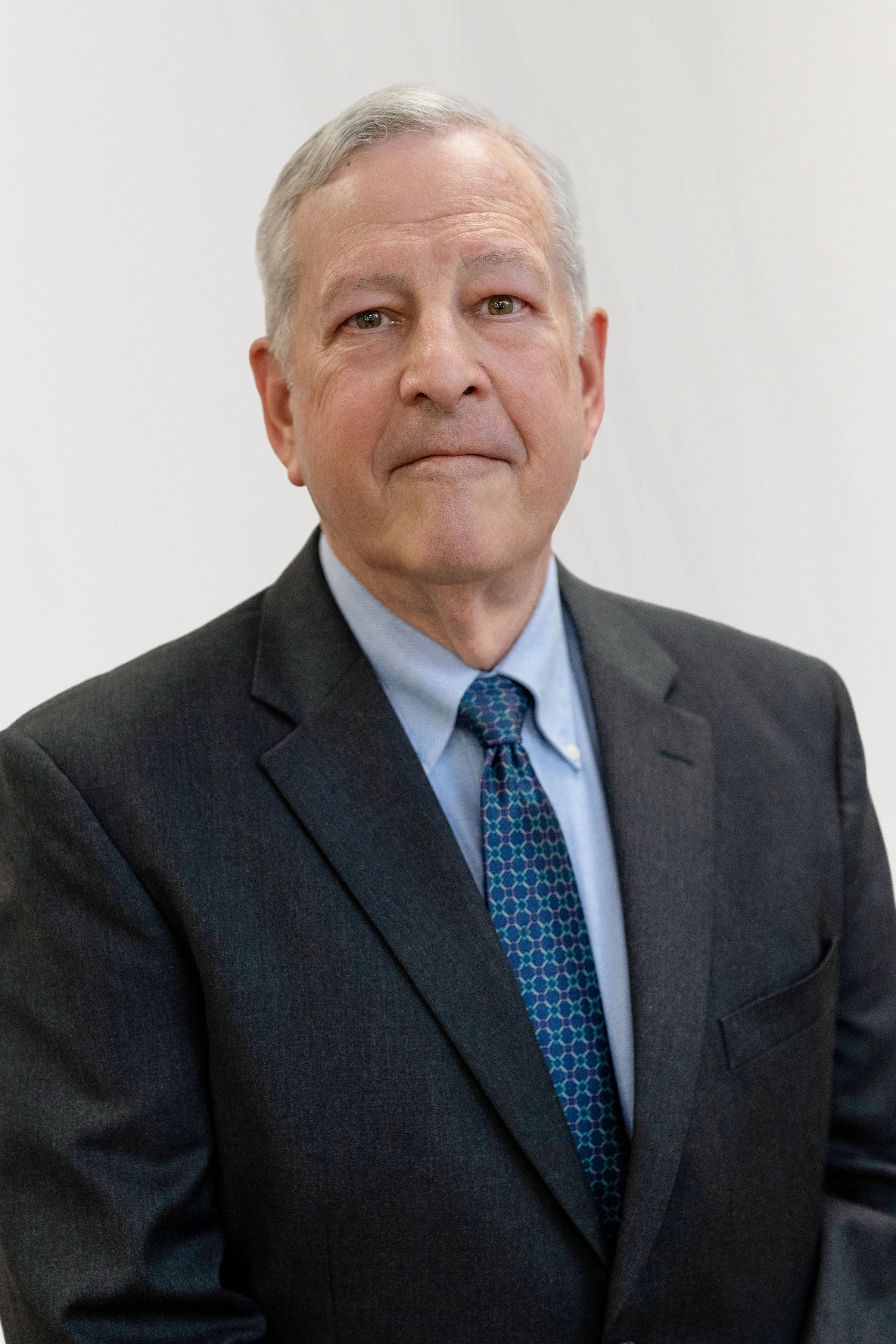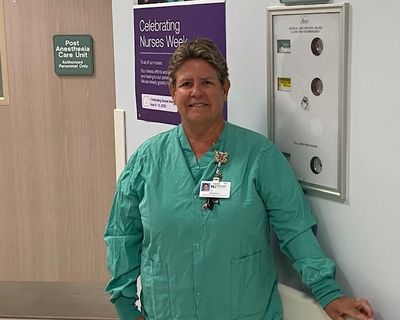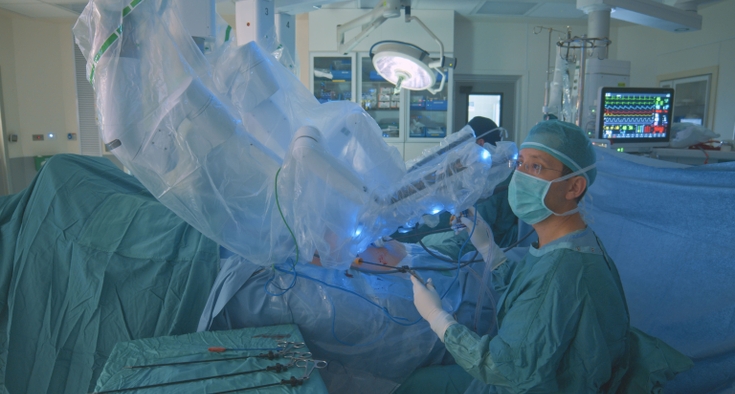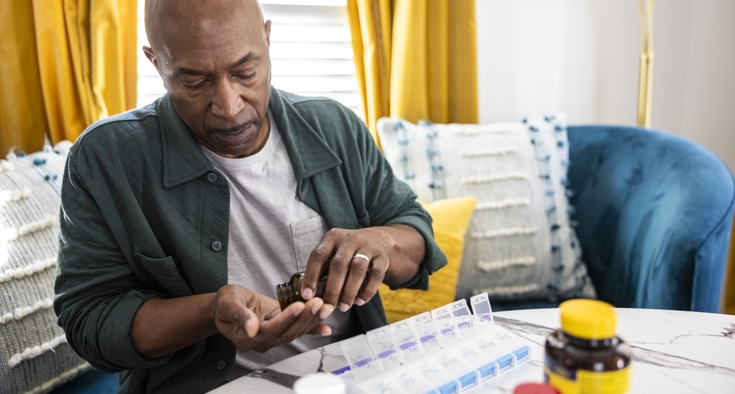In 1975, America caught disco fever, and Roy Scheider (Chief Brody in "Jaws") ad-libbed one of the greatest lines in cinematic history: "You're gonna need a bigger boat." The Vietnam War ended and a Harvard dropout named Bill Gates co-founded a little company that would grow into a global giant.
But that August, the biggest news on Hilton Head Island was that residents finally had a medical center: When Hilton Head Hospital opened Aug. 8, the island’s 6,500 residents no longer had to leave town for hospital care.
That day, Gov. James B. Edwards gave a speech, the Parris Island Marine Band played and 1,600 people – nearly one-fourth of the island’s population – came out to celebrate.
Hilton Head Medical Center has seen a lot of change in 50 years. One of the biggest changes happened in February of 2024 when the community hospital, now known as Novant Health Hilton Head Medical Center, joined the Novant Health network.
A hospital auxiliary that predates the hospital
Two years prior to the hospital’s 1975 opening, Dr. Peter LaMotte, a Hilton Head transplant from New York, and local attorney William Bethea, Jr., hatched a plan to build a hospital on the island.
LaMotte, who’d been chief of trauma in orthopedic surgery at Roosevelt Hospital and team physician for the New York Mets, was acutely aware of the need to serve Hilton Head Island's citizens who were mostly retirees.
In November 1973, LaMotte enlisted Dorothy Hatch to create an auxiliary to raise money for hospital equipment and serve patients, staff and the community. “We assist in improving healthcare quality, access and delivery by providing aid and comfort to patients and their families at Hilton Head Hospital and Coastal Carolina Hospital,” said Mike Rosenfeld, a Washington state transplant who serves as president of the Hospital Auxiliary. “We’re 100% run by volunteers.”

“From the minute the hospital opened, I think it became very important to the community,” he added. “From anywhere on the island, you can be in our hospital’s ER within 15 minutes. And there, you’ll find tremendous expertise in the types of ailments we have here.”
He’s referring to the needs of seniors, since so many call Hilton Head Island home.
“About 25% of island residents are 65 or older,” Rosenfeld said, about double the average American city. Between 2000 and 2020, the island’s 65-and-over population increased 80%.
“So, the hospital has a number of specialties oriented toward that demographic – cardiopulmonary and thoracic surgery, orthopedic surgery, gastroenterology,” he added. “Coastal Carolina has a NICU and a big OB practice. There are lots of babies born at Coastal; that’s where the young folks are.”
It also serves tourists whose vacations are interrupted by injury or illness. In the summer, Hilton Head’s population of around 40,000 balloons to about 160,000.
“We see lots of tourists,” said Rowena Deaton, a nurse and the hospital’s director of surgical services. “People who haven’t ridden a bike in a long time come to the island and may fall and break a bone. Pickleball seems to be big business development for us now, too.” Jellyfish stings also bring people in.
Four decades … and counting

Deaton’s been at the hospital for 42 years. She originally worked nights as a staff nurse, and rose through the ranks to supervisor and then director. She’s seen a lot of changes. The biggest one, she said, is “the complexity of cases we see and the huge growth in minimally invasive treatments.”
Very few people these days spend their entire careers at one organization, but Deaton isn’t unique at Hilton Head Medical Center. “Three or four of us have been here over 40 years,” she said, “And a lot of staff members have been here 15, 20 years.”
Her colleagues are the main reason for her longevity. “You become very loyal to them, and they become loyal to you,” she said. “What we do can be high stress, but we thrive on that. The teamwork within the operating room is phenomenal.”
That makes a difference for patients, as Deaton knows. She’s been admitted as a patient four times. “It’s different being on the other side,” she said. “I’m proud of this staff. They will take great care of you.”
Rosenfeld has been a patient, too.
When the retired civil engineer and his wife moved to Hilton Head in 2021, he knew he needed both hips replaced. “My wife said, ‘Since you’ll be in the hospital – twice – I’m going to get involved with the auxiliary so we can get to know these folks,’” he said. “I joined a couple of weeks after my second hip replacement.”
An integral part of the hospital
The Auxiliary’s importance to the hospital goes beyond the funds they raise. They also supply volunteers at both hospitals and the Bluffton-Okatie Outpatient Center, Bluffton Medical Campus and the Tidewatch ER.
“A lot of our volunteers are retired nurses and others with healthcare experience,” Rosenfeld said. Many have worked in hospitals as leaders. “That hospital experience adds a lot to what we do.”
The hospital and the auxiliary that supports it are inextricably linked. “The hospital identifies a need, and we respond,” is how Rosenfeld described the relationship. For instance: The Auxiliary raised $125,000 in 1976 to help the hospital remain open during financially difficult times.
Hilton Head is a wealthy and generous community. Many individuals and families give to the cause year after year. But it’s more than individual donors making things happen. One example, a benefit golf tournament grew into an annual event and became the principal source of scholarship funds. It’s the oldest charity golf tournament on the island. All told, it’s raised more than $1 million.
Among the major additions the Auxiliary made, or helped make, possible:
The acquisition that changed everything
But that changed when a for-profit corporation bought the hospital in 1994. “When we were sold and became for profit, I think we lost a lot of the community’s trust,” Deaton said. “We always said: ‘We’re still the same people. We’re still taking great care of you.’ But that got overshadowed by the for-profit organization.”
Tax rules prevented donations of equipment to a for-profit, so the auxiliary pivoted to focus on providing scholarships. Deb Harberger, a nurse who’s been at Hilton Head Hospital for more than 30 years, was among the first recipients.
In 1978, the Auxiliary began funding a scholarship program for nurses in an effort to address the critical nursing shortage in the region.
Scholarships are also available to hospital employees who wish to advance their healthcare education and to their children.
The more things change …
In February 2024, Novant Health bought Hilton Head Hospital and made it part of its 16-hospital system. The acquisition takes the hospital back to its nonprofit roots.
Rosenfeld said the Auxiliary is ready to do whatever it can “to help Novant Health and the Foundation advance its goals in creating quality healthcare in the region.”
There’s a lot of excitement – in Hilton Head and throughout Novant Health’s territory – about the alignment between Novant Health and Hilton Head.
Excitement coupled with hope.
“Becoming part of Novant Health is, to me, huge,” Deaton said. “I think the community is going to end up loving us again. We’re your neighbor, your daughters, your sons. And we're going to take the best care of you we possibly can. I'm proud to go out and say I’m part of Novant Health.”
A half-century of service to the community

Through the years, Hilton Head Medical Center has demonstrated its commitment to the community by investing in and adding new technology, facilities and services.
1973 Plans for Hilton Head Hospital (HHH) are announced. A core team of volunteers organize as the Hilton Head Hospital Auxiliary to lend a helping hand in hospital departments and to raise money to support operations and buy equipment.
1975 The grand opening for the 40-bed hospital takes place in August.
1985 The hospital celebrates its 10th year of operation. During this period, the Auxiliary raises and donates $950,000.
1994 Hilton Head Hospital is sold to Hilton Head Health Systems, LP, a for-profit partnership. Tenet Healthcare Corporation eventually becomes the new owner.
1995 The hospital’s first catheterization lab and Physical Rehabilitation opens.
1996 The Hilton Head Island/Bluffton Gift of Life Program begins.
2000s HHH renovates and opens a new 23-bed emergency room, 12-bed intensive care unit and women’s center.
2003 The first patient has coronary bypass surgery. MRI is installed.
2004 HHH begins work on an $8.7 million project to include two new operating rooms, a nine-bed recovery area and family waiting room.
April 2007 HHH pledges $750,000 to the University of South Carolina Beaufort nursing program to provide education and training for the advancement of quality health care and nursing care to the community.
February 2008 Hilton Head Regional Healthcare joins forces with the Medical University of South Carolina’s Hollings Cancer Center to fight the disease.
March 2009 The hospital installs the Aquilion 64 CT scanner designed to offer physicians greater diagnostic capabilities to help patients avoid more invasive medical procedures.
2010 Spine Center opens at HHH along with an anticoagulation clinic.
July 2010 HHH embraces social media with a Facebook page, providing health-related items and other timely information to the community.
2013 HHH breaks ground on its $18 million, 60,000-square-foot outpatient center, Bluffton Medical Campus; a limited number of services open in November.
July 2013 HHH adds MAKOplasty, a robotic arm-assisted partial knee resurfacing procedure designed to relieve the pain caused by joint degeneration due to osteoarthritis (OA).
January 2014 Bluffton Medical Campus opens. It’s a 60,000-square-foot, $18 million outpatient center designed to improve the continuity of care by having some of the highest quality services in one location.
July 2014 HHH renames its Women’s Center the Glenn N. Love MD Women’s Center.
January 2021 HHH offers minimally invasive joint replacement procedures using the Cori Robotic system.
February 2024 Novant Health purchases HHH from Tenet Healthcare, making the hospital part of a 16-hospital, nonprofit system in North and South Carolina.
2024 The Hospital Auxiliary provides $90,000 in scholarships to more than 40 deserving students in nursing and clinical healthcare programs.
February 2025 Novant Health South Carolina Foundation is established.








